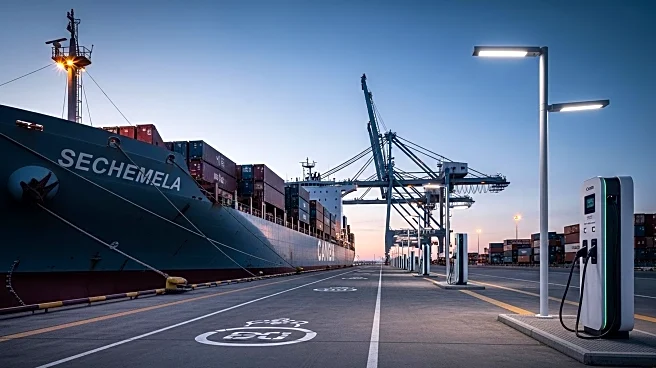What is the story about?
What's Happening?
European ports are undergoing a transformation to support the continent's decarbonization agenda, with the EU's Fit for 55 package mandating significant reductions in greenhouse gas emissions. Ports are critical in this transition, serving as nodes for maritime, road, and rail transport. However, the electrification of port operations faces challenges due to municipal ownership structures, which complicate funding and governance. The need for Onshore Power Supply (OPS) and grid capacity investments is crucial, but financing models are misaligned with the scale of the challenge. Ports like Helsingborg in Sweden are exploring innovative solutions, but broader collaboration and funding are necessary to achieve decarbonization goals.
Why It's Important?
The electrification of ports is essential for reducing emissions from maritime transport, which contributes significantly to global CO2 emissions. Successful implementation of OPS and other electrification measures can enhance the sustainability of Europe's logistics system. However, the financial and governance challenges faced by municipally owned ports could hinder progress, affecting the EU's ability to meet its climate targets. Addressing these issues is vital for ensuring a fair and effective transition to cleaner energy sources in the transport sector.
What's Next?
The EU and national governments may need to increase support for port electrification projects, potentially through direct investments or co-funding initiatives. Collaboration among ports to pool resources and share investments could help overcome financial barriers. The development of utility-based models and joint procurement strategies may also be explored to align funding with legal mandates and ensure cost recovery.
Beyond the Headlines
The situation highlights the importance of aligning environmental goals with economic realities. The challenges faced by ports reflect broader issues in the transition to sustainable energy systems, including the need for coordinated policy and investment strategies. The role of ports as energy nodes in the logistics system underscores their potential to drive decarbonization efforts beyond maritime transport.

















